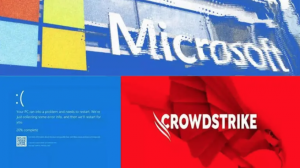Are immunity passports and ‘vaccine tattoos’ coming?


Could the introduction of tracing applications and the ID2020 immunisation program all just be pieces of a larger system to come? Ethan Nash explores.
QUANTUM DOT TATTOOS
The way vaccinations are received and monitored may be about to radically change in the near future, with new discoveries allowing for the potential to expand traditional models.
A recent December 2019 study published in Science Translational Medicine describes the development of ‘quantum dot tags’ that fluoresce with information as part of a vaccine injection.
Kevin McHugh, an Assistant Professor of Bioengineering at Rice University, and bioengineers Robert Langer and Ana Jaklenec from the Massachusetts Institute of Technology, conducted the research:
“McHugh et al. developed dissolvable microneedles that deliver patterns of near-infrared light-emitting microparticles to the skin. Particle patterns are invisible to the eye but can be imaged using modified smartphones.
By codelivering a vaccine, the pattern of particles in the skin could serve as an on-person vaccination record.”
Different to traditional injection methods, researchers have tested on rats biometric ‘tags’ that can be incorporated via sugar-based microneedles on a patch.
When the needles dissolve in about two minutes, they deliver the vaccine and leave a unique pattern of tags just under the skin, where they become something like a bar-code tattoo:


Research into dissolvable microneedles has become a recent phenomenon, and the new developments suggest the invisible ‘tattoo’ is a pattern made up of minuscule “quantum dots”. These are described as tiny semiconducting crystals that reflect light — glowing under infrared light.
Here is where things get interesting. An article published by Rice University on the findings reveals that, you guessed it, Bill Gates has played a part in the development of this research.
McHugh, who was recruited to join Rice with funding from the Cancer Prevention and Research Institute of Texas (committee includes former Gates advisors), described the following events:
“The Bill and Melinda Gates Foundation came to us and said, ‘Hey, we have a real problem — knowing who’s vaccinated’.
They said, ‘We go on vaccination campaigns where people get into Hummers, drive to a rural village, set up a tent and start immunizing people, but they don’t always know who’s been immunized before and what vaccines are still needed.” [x]
McHugh says funding from the foundation and institute allowed the team’s research on ‘quantum-dot’ tattoos to come to life — which is primarily targeted at children. He continues:
“The square-centimeter patches hold up to 16 tiny needles. They don’t go very deep, which makes them theoretically painless and a lot easier for kids.
They’re like putting on a bandage.”
The paper also suggests the technology could be useful “in the developing world” for “intradermal on-person vaccination recordkeeping”.
This is important to note when you consider current campaigns being undertaken in third-world countries by the Gates family and other private organisations. The central themes? Vaccination uptake and digital identification databases.
Could there be a link between ‘quantum dot’ research and ongoing ‘philanthropist’ programs?
TEST GROUND: ID2020
The ongoing push for digital identification is not a new occurrence, however, the concept has become increasingly prevalent in many societies in recent years.
The United Nations Agenda 2030 document states as part of Sustainable Development Goal — a target to “provide legal identity to all, including birth registration, by 2030”.
In recent years, a new project called ID2020 has emerged, consisting of a public-private coalition which advocates for digital identification for a billion undocumented people worldwide.
The ‘ID2020 Summit’ was held at the United Nations headquarters in New York in June 2017. Microsoft and Accenture attended, as well as ‘humanitarian’ groups including the World Food Programme and the UN Refugee Agency.
The meeting discussed creating digital identification for every person on the planet. One that is tied to fingerprints, birth certificates, medical records, education, travel, bank accounts and more.
Working with the United Nations High Commissioner for Refugees (UNHCR), the ID2020 group soon drafted a formal articulation of their perspective on ‘ethical approaches’ to digital identity.
The stage was set, but just how will this team achieve such an objective and deliver on the Agenda 2030 plan? To answer, we must look to projects subsequently announced by the group.
ID2020 is now playing a key role in live digital identification programs, including currently advising the government of Bangladesh on the development of a vaccination records system.
A September press release, in which ID2020 described the program as ‘its largest ever venture’, will be undertaken in collaboration with the Global Alliance for Vaccines and Immunization (GAVI).
Bill Gates was an early investing partner in the GAVI, which has now grown a substantial portfolio of public-private international health partnerships to increasing access to immunisation.
Today, GAVI has grown significantly. The group brings together developing country and donor governments (including Australia), the World Health Organization, UNICEF, the World Bank, the vaccine industry, research and technical agencies, civil society and other private philanthropists.
So, not only has Bill Gates partially funded research into the development of dissolvable tattoos in microneedles, but now both Microsoft and GAVI are driving forces behind the ID2020 program.
This collective has called for universal digital identification and is running programs around vaccine recordkeeping. Now that a ‘virus’ has emerged, the linkage between the two has become clearer.
But it doesn’t stop there. Remember how researchers expressed the benefits of quantum-dot tattoos for children? Well, the ID2020 program in Bangladesh announced that the government would create a database of children’s immunisations to be linked to their parents’ biometric information.
This includes trials of biometric recordkeeping of children, including babies.
Think about it: Children are now being taught to ‘social distance’ and abide by ‘new normalities’. Could this new system of control really be intended for future generations to come? Some food for thought.
Either way, the implementation of digital identification and biometrics in developing countries can attract real controversies, and the initiative may yet run into criticism.
As reported by TNH last year, the technology used to identify infant biometrics is not fully mature, and raises practical and ethical questions.
When a child’s ‘digital health card’ is linked with country’s health system and is seen as an entry point for a user-centric, portable digital identity, the ‘benefits’ will extend far beyond immunization.
As children age, the same identification means may be used in other areas of life, including to enrol in school, amass digital credentials and access vital services and protections.
Make no mistake, ID2020 is using Bangladesh as a case study of what a world with a digital ID will look like, and in Australia, many existing systems are tipped to merge and create similar models.
How are these characters preparing the industrialised world for a similar introduction?
COVID-19 AND IMMUNITY PASSPORTS
The COVID-19(84) saga has given birth to a new era of health paranoia in the general populous, and moving forward in a ‘post-lockdown COVIDSafe’ Australia, similar systems to those used in the ID2020 program will likely take shape over the coming months. Many argue they are already here.
Not surprisingly, the same characters once again rear their heads in one form or another.
Bill Gates, a man who has been at the forefront of a push for mass vaccination of the planet, has also floated the idea of ‘digital certificates’ that could be used to prove COVID-19 vaccination status:
“What we’ll have to have is certificates of who’s a recovered person – who’s a vaccinated person, because you don’t want people moving around the world where you’ll have some countries that won’t have it under control.”
Since this now-infamous Reddit Q&A was published, the idea of issuing some form of certificates to people who have been sick with the virus — on the assumption they would be immune to reinfection — has been gaining ground in many places, including the UK, as authorities look to ‘end’ lockdowns.
In Australia, the mainstream media is now beginning to push this agenda through online polls and television programs, with many predicting a firmer push to come along in the months ahead:

The COVID-19 Credentials Initiative (CCI) is working on a digital certificate, using the recently approved World Wide Web Consortium (W3C) Verifiable Credentials standard.
The certificate lets individuals prove (and request proof from others) they’ve ‘recovered’ from the coronavirus, have tested positive for antibodies or have received a vaccination, once one is available.
So, essentially, all those seeking to regain the freedom that they enjoyed prior to the onset of the coronavirus would need to get the appropriate vaccination, and they would then receive a “passport” of sorts that states what level of freedom they would be allowed to have in the future.
However, on closer analysis, the concept of immunity passports and claims of ‘protection’ fall apart.
In a scientific briefing note, the World Health Organisation warned that “there is currently no evidence that people who have recovered from COVID-19 are protected from a second infection”.
By their own admission, even one that receives a vaccine is not guaranteed to be protected from further infections. In fact, like the regular flu, the vaccine will simply serve as a preventative measure — meaning any use of a ‘passport’ to prove ‘immunity’ would be ineffective and useless.
Would citizens then be required to take annual COVID-19 boosters to continuously prove immunity?
So, if the push for immunity passports isn’t designed as a way to protect us against the invisible enemy, just why would this method be pushed? Where does ID2020 tie into all of this?
At the ID2020 Summit, Accenture demonstrated a working prototype that would provide a person’s informationthrough an app. In the absence of a personal device, that person could still be recognized through fingerprintsor iris scans, as long as that information was in the database.
An app? Interesting. In Australia, we have seen the introduction of COVIDSafe — a new tracing app designed to locate and contact residents who have been in contact with ‘confirmed cases’.
COVIDSafe data will be hosted by Amazon and a number of privacy concerns have already arisen.
However, as we have explored, the COVIDSafe app is not about tracking, rather it is the foundational basis for a future ‘digital social card’ where the ‘correct’ behaviours of millions will be monitored.
Experts have already described how the draft legislation doesn’t protect citizens against the use of coercion by private companies and employers — a notion also confirmed by the Health Department.
Soon, downloading the application (or intrusive alternatives) will likely become a mandatory requirement as new ‘clusters’ begin to arise during an expected ‘second wave’.
Indirectly, businesses are already asking customers who haven’t downloaded the app to leave their details before entering, including name, phone number and address. This may not be concerning at present, as citizens also have the option to not use the service, but what happens down the track?
In the future, the COVIDSafe app will likely merge with the concerning MyGovID program, continued pushes for national digital identification, My Health Record system and more.
The new, all-encompassing digital identity will also link to emerging smart city infrastructure and all programs will be linked to Australia’s 5G network and the Internet of Things (IoT).
Once merged into a complete digital version of a person, annual COVID-19 vaccines will become a requirement and compliance will be stored on the application. Is your smartphone and vaccine barcode up-to-date, citizen?
Is this the future you want for your children and grandchildren? Will Australians wake up to this ongoing Agenda 2030 plan in time?
Stay tuned for further updates.
Source: https://tottnews.com/2020/05/14/immunity-passports-vaccine-tracking/








